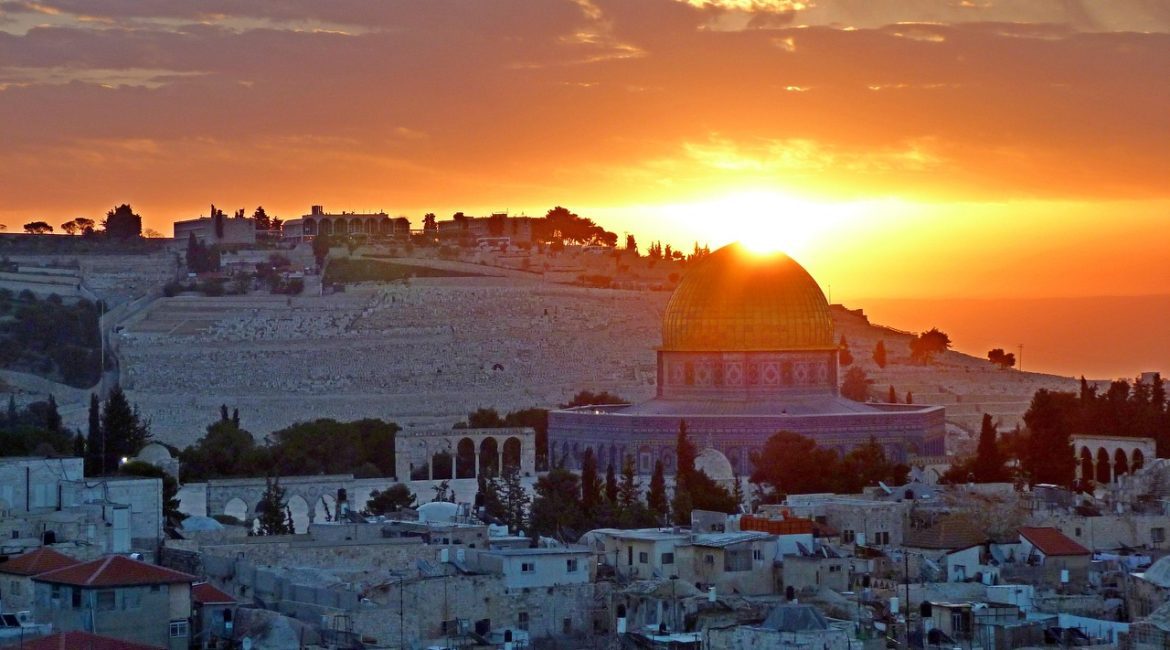Since its creation, Zionism has undoubtedly been one of the most controversial political movements. It is at the origin of one of the most reprehensible political actions in history, where individuals of a people or community decide that it is time to return to the land they left two thousand years ago.
In its latest report on the Israeli-Palestinian situation, the NGO Human Rights Watch declares that the Hebrew State actually corresponds to an apartheid state, based on the treatment of its citizens following their ethnic or religious origin.
There is no simple solution to this conflict, but refusing to recognize each person's legitimacy can only prevent peace from being achieved. This drama is not limited to the Israeli-Palestinian conflicts, which are those which occur between the Palestinians of the West Bank - Gaza and the Israelis, nor to the Israeli-Arab conflict. It also covers conflicts between Jews and Palestinians in the State of Israel.
Today, there is so much to say about the human tragedy that has struck the Palestinian people since their land was colonized by Israel. By appropriating eight-tenths of Palestinian territory since its creation in 1948, Israel put an end to Palestinian nationality and dealt a severe blow to the identity of this people. Those who remained in the part of the Palestinian territory occupied by Israel became Israelis. But they are Israelis of second division, discriminated on the basis of their faith and their identity.
Two-thirds of the Palestinians in Gaza live in refugee camps, whose families were expelled from their towns or villages in 1948 during attacks by Zionist pioneers. They have remained refugees in their own land from generation to generation since that year.
Furthermore, following an intense battle for power in the Gaza Strip between Hamas, an Islamist party, and Fatah, the party of Yasser Arafat and Mahmoud Abbass, Hamas won the legislative elections of January 25, 2006 and choose a new Palestinian Legislative Council.
But the European Union did not recognize the results that led to the victory of Hamas, and considered it a terrorist group. Israel, which financed the Hamas movement with the aim of discrediting Fatah, worked furiously to sabotage the elections.
Since Hamas took control of the Gaza Strip in June 2007 and Egypt closed its Rafah border crossing, Israel has imposed a blockade that has hampered the social and economic lives of the Gaza's population. The UN estimates that Israel's blockade of Gaza has cost around $17 billion.
Israel limits maritime access to Gaza and bans maritime transport. The city is also blocked from building port facilities. At the risk of being killed by Israeli border guards, fishermen cannot fish offshore and must be content to navigate in the area close to the coast.
In addition, Palestinians are prohibited from traveling between Gaza and the West Bank. So, Palestinian families cannot visit each other.
The current war demonstrates the devastating impact of incessant Israelis bombings and heavy artillery fire on the civilian population. From the beginning of the conflict, almost 15,000 Palestinian civilians have lost their lives, including at least six thousand children. More than a million Gazans are displaced or injured and thousands of homes are destroyed. This nightmare scenario is playing out in Gaza and the West Bank where places like Nablus, Jenin, Khan Younes, Rafah, Bayt Hanoun and others are under attack with explosive weapons.
According to the UN Office for the Coordination of Humanitarian Affairs, the crisis is expected to affect two million people who need urgent humanitarian assistance. Reports continue of civilians trapped in bombed cities. Severe shortages of essential health supplies, fuel and cash are being reported across the Palestinian territory, with increased insecurity affecting access to basic services.
The international community is deeply concerned about the considerable loss of life and civilian damage caused by the use of heavy explosive weapons in populated areas, but also by the use of internationally banned weapons, such as cluster munitions.
Bombing and artillery fire in Palestinian towns has also caused damage and destruction of civilian infrastructure such as homes, hospitals, schools, water, electricity, sanitation infrastructure and communications networks, disrupting access to essential services.
The international community must also do everything in its power to prevent such a situation from happening again. The events in Palestine demonstrate the urgency of adopting the political declaration against the use of explosive weapons in populated areas.
Is there any possibility of peace between Israel and the Palestinians, or must we simply get used to periodic wars that deprive both sides of the peace and stability they seek?
The history of the Israeli-Palestinian conflict is littered with failed peace plans, collapsed diplomatic conferences and disillusioned mediators.
There is only one way forward in Gaza: the two-state solution. It seems feasible from a geographical point of view, provided that a compromise is found on the territories to be exchanged.
The two-state theory is based on the idea that we face two nationalisms: Zionism and the Palestinian national liberation movement, each claiming a nation-state. The Oslo Accords, which were signed in 1993, have historical importance because they formally recorded this demand and this perspective.
Since the Oslo Accords have not been implemented and the Israeli colonization of the West Bank has continued to expand on the ground, the creation of a viable Palestinian state becomes de facto distant but more crucial than ever.
At the moment, that the humanitarian catastrophe in Gaza has brought the issue to the forefront, it is clear that there can be no resolution without some decisive steps towards a two-state solution, despite the escalation of violence and even if the obstacles are huge.
The optimal approach would be to adopt the renewed perspective of a two-state solution to quickly galvanize the moderate forces of both parties. Such conjecture will not apply without strong and sustained international commitment from the United States, the European Union, Russia and Arab states.

